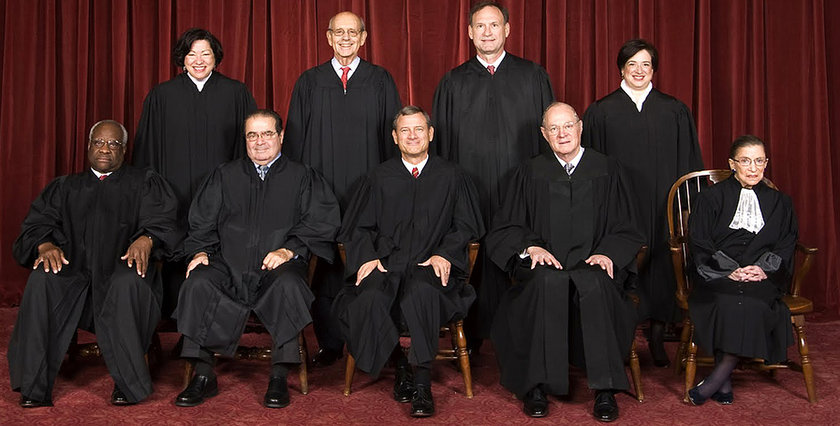I’ve read articles that attempt to divine what type of justice Antonin Scalia would have preferred to succeed him, and my only response is “who cares?” That’s not because I had such sharp political disagreements with the late jurist and thought his “constitutional purity” was anything but, because I feel the same way about every member of the bench. These people are public servants, not royalty, despite the esteem of the position and the lifetime appointment. None of them should have any say in “hiring” their replacements.
The modern court has often seemed a very detached and at times arrogant body, one positioned at a great distance from the American public. That may be because the members emerge from such a narrow pool, the Eastern Corridor / Harvard-Yale / Federal Appeals Courts circuit, which is the reality of almost all the justices, right, middle and left. Operating from such a remove has its pluses ad minuses. No one should want to turn the justices into politicians prone to the vicissitudes of the endless media cycle, but the air they breathe should neither be so rarified.
In a smart NYT Magazine piece, Emily Bazelon encourages a new type of diversity that almost always goes unmentioned when the important matters of race and gender are considered. Although she suggests President Obama use the current vacancy to consider those with unconventional credentials, that likely won’t happen with Scalia’s replacement, so factious the current landscape is. Bazelon, though, feels it might actually help neutralize polarization.
The opening:
Seven of the eight justices on the Supreme Court today all come from the federal appeals courts. (So did Justice Antonin Scalia, who died Saturday.) Only Justice Anthony M. Kennedy, who was a judge in California, served outside the East Coast cities of Boston, New York, Philadelphia and Washington. All eight attended law school at Harvard or Yale. None ever held elected office. Today’s court is “in some ways the most insulated and homogenous in American history,” as Adam Liptak wrote in 2009.
And so, here’s a question for President Obama, as he and his advisers are making their short list and checking it twice: Should the next justice bring a diversity of professional experience not currently on the court? Would a nominee who comes from outside the bench excite the country?
If every justice must have credentials like those currently serving on the Supreme Court, then the definition of who is qualified has become exceedingly narrow. “At a time when Americans are worried that the elite are running the country, and not doing a good job of it, this is the most elite group you could have,” says Benjamin Barton, a law professor at the University of Tennessee, Knoxville, who has studied the pre-appointment experience of Supreme Court justices. “And it didn’t used to be this way.”
That’s true.•
Tags: Antonin Scalia, Emily Bazelon

